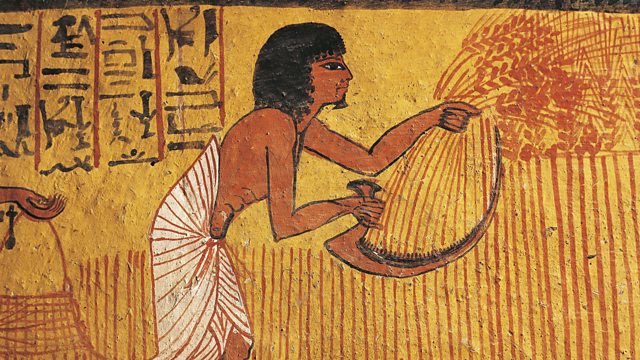Agriculture
Some 10,000 years ago our ancestors began to till the soil, producing the energy surpluses needed to feed the first cities and civilisations.
In part two of his history of the human use of energy, Justin Rowlatt explores what was the original solar energy revolution – harnessing the sun’s rays to grow food. Some 10,000 years ago our ancestors began to till the soil, producing the energy surpluses needed to feed the first cities and civilisations.
Growing crops was gruelling work, as Justin discovers at Butser Ancient Farm, when he tries to till some soil himself with a replica Stone Age mattock. Resident archaeologist Claire Walton gives Justin a tour through ten millennia of British farming history.
But what first prompted our ancestors to take up such an arduous way of life in the first place? Anthropologist Robert Bettinger thinks it was down to the unusually benign conditions since the end of the last Ice Age. In any case, agriculture delivered domesticated plants and animals that could sustain much bigger human populations, according to Mark Nesbitt of Kew Gardens, and Melinda Zeder of the Smithsonian Institution. And that in turn made the discovery of radical new technologies possible.
Producer: Laurence Knight
Presenter: Justin Rowlatt
Studio manager: Rod Farquhar
Production co-ordinator: Zoe Gelber
Editor: Rosamund Jones
Last on
More episodes
Previous
Next
Broadcasts
- Tue 6 Apr 2021 11:00Βι¶ΉΤΌΕΔ Radio 4
- Mon 12 Apr 2021 21:00Βι¶ΉΤΌΕΔ Radio 4

